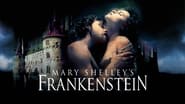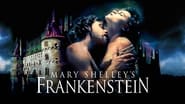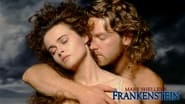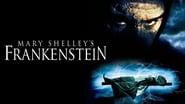dnjsthd
Evaluation that it made too much contemporaryly is a little bad but I do not think this is a bit ... Anyway, this movie is a rare outstanding work making use of circular work literature as it is ... Doctor who created a monster will be faithful to its duty.De Niro who came out on the monster showed really nice performance. Feeling I threw myself Monster begins very miserable revenge, the process was entirely somututo. But in the end they all leave everything and then leave somewhere and appear again... The scene I will not forget is the scene that my father, he did not give me a name ... suddenly become very sad. But, in the end, Frankenstein is feeling that the world without his father feels that hecan not exist and disappears again. ..The scene where I feel that there is no meaning in the world without my father who created myself as just one human, not the last multiple destroyers, was really good. It is a highly recommended work ...
elicopperman
Mary Wollstonecraft Shelley's 1818 novel, Frankenstein, is to this day considered to be one of the greatest horror novels of all time due to it's clever dialogue, dark tone, elements of the macabre, and the moral of how science should never take away the dignity of anyone. Even though there have been so many film adaptations, none of them were ever really faithful to the book and were more well known in pop culture. But then in 1994, director/writer/actor Kenneth Branagh came out with his own dramatic horror film adaptation of the novel and was ambitious to make it as faithful to the source material as possible. Unfortunately, just because you're ambitious with something doesn't mean everything will go the way you plan, and that's where the movie sinks under.The formula is all there, Victor Frankenstein wants to learn the ways of bringing the dead back to life after a tragic death in his family, but the process he uses ends up being both amazing and horrifying and leads him further into madness. Sadly, the movie feels too convoluted with a straight-forward plot getting twisted with constant plot points, unnecessary and forced attempts at being depressing and scary, and too much time spent on the titular character to give any other characters a chance to shine. It seems to be so overambitious with capturing what made the book work that it feels less subtle about it, and ends up feeling more artsy and operatic which doesn't fit well. But the worst and most ridiculous part of it all would be the altered ending, which nearly ruined the whole movie. Without giving away too much, let's just say that Victor Frankenstein was more crazy about his fiancée than you think.Admittedly, the film does stay faithful to the book sometimes without really spitting in it's face, like Victor's reasoning of performing galvanism, the monster learning that people fear him the hard way, and how Victor gets to meet Robert Walton. However, several other times it makes it's own little alterations that can range from weird to flat out dumb, like how Victor and Henry met and the death of Victor's mother. It doesn't help that the changes they made really affected the characters, both mentally and physically. Victor is still the insane and desperate yet tragic inventor from the book, but Clerval is not well acknowledged, Elizabeth is dull and uninteresting, the monster is still the same but feels less gruesome and more amateurish, and the film will often show a character more (like Justine's mom) than the novel did. It just goes to show that sometimes, things can go in a manner more unintentional than you planned out.As for the aspects of filmmaking, while it does go style over substance some of the time, the sets, backgrounds, and effects still look pretty impressive and quite artsy. This is one of the film's ambitious efforts that actually payed off, even the soundtrack gives the film some suspense and feel of drama. The acting is another story; where some like director Kenneth Branagh, Robert DeNiro, Tom Hulce and Richard Briers do give off pretty believable and charismatic performances, others like Helena Bonham Carter, Aidan Quinn, Trevyn McDowell and John Cleese range from decent, to boring, to less serious and more awkward and goofy, which does not fit the tone of the movie this should be. Also, since the pace can get a little dull, even some of the gorgeous sites start to look the same after a while. When the film gets bloody and graphic, it also works well, but even some of the blood looks pretty fake and sleazy.At the end of the day, it feels like Kenneth Branagh was so ambitious to make his adaptation as faithful as possible to Shelley's novel that he intentionally got some right and unintentionally failed ridiculously at other points. The film has it's similarities that do treat the novel with respect, along with some gorgeous sets, a nice music score, and some depth and drama here and there, yet the differences (some not having much of a point btw) overshadow the similarities complete with hit or miss acting, forced attempts at sad moments(with one exception), and one of the dumbest endings ever seen on film. In a sense, the movie is like focusing more on design than writing: Sure it looks like you really put some sweet time and effort in accomplishing the former, but the ladder really needs some improvement. Now I'm starting to see why the 1930s Frankenstein movies are seen as the superior films, even though they're not faithful adaptations, they work as subtly emotional and powerful movies on their own without going overboard in their style.
mark.waltz
Everything in this film is overkill. The blood, running camera blocking, the operatic musical score, the screaming, fire, ice, and the ultimate overkill, death itself. I thought that the usage of a bit of excess in the earlier "Bram Stoker's Dracula" was simply perfect, but what do filmmakers do when they succeed? Try to improve, and while that's admirable, in most cases, they fail miserably. For every "Sound of Music", there's a star, and for every "Deer Hunter", there's a" Heaven's Gate". Even Mel Brooks, brilliantly spoofing the monster legend with "Young Frankenstein", became ridiculously silly decades later with "Dracula, Dead and Loving It". So it goes to follow that with this monster follow up that may leave you with a migraine. I stand by this, because I saw it and "Bram Stoker's Dracula" in the the after when they were first released in the theater.From the swirling cameras to frenzied special effects, this reminded me of why the second "Indiana Jones" film got very mixed reviews. It fails to realize that sometimes, less is more, and don't try to improve on practical perfection unless you are sure that indeed (without ego), it is perfection. This really does have some good things going for it, but a mixture of moods and energies are its failings. There's no denying that both Kenneth Branaugh and Robert DeNiro tried their very best, but the script doesn't flow easily, and too much attention is focused on trying to give DeNiro's monster constant sympathy. Helena Bonham Carter, as Branaugh's life long love, spends much time as the traditional fragile heroine, only coming to life, ironically, when her character is dead. Tom Hulce plays a buffoon medical student, while Ian Holm and Cherie Lunghi are touching as Frankenstein's parents. However, as the mother, Lunghi looks more like his sister, much time scattered past between his childhood and adulthood.









